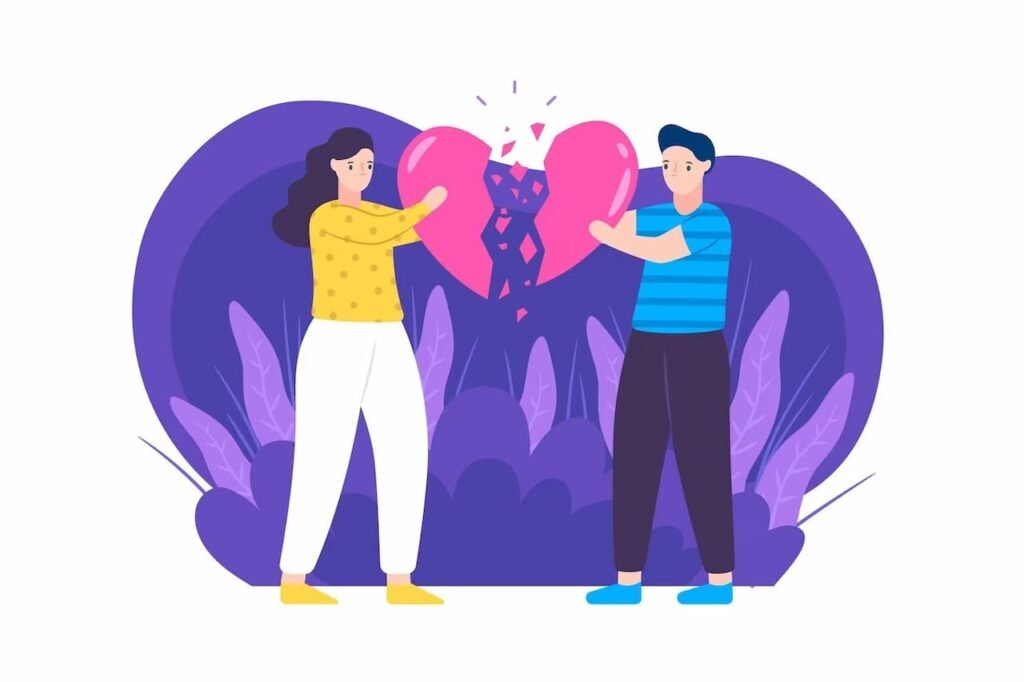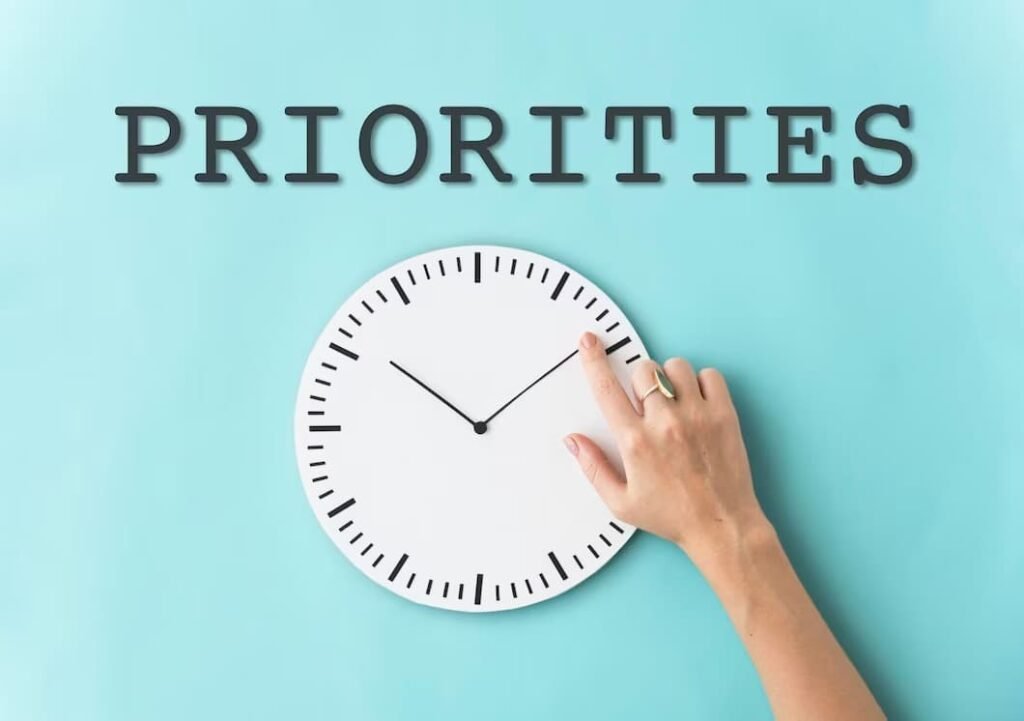Talk to a Psychologist for Online Counselling
Book Appointment Now 100% Private & Secure
Convenient, 100% anonymous, safe, certified professional counseling online.Relationships are beautiful, complex tapestries woven with love, understanding, and compromise. While many hurdles can be overcome through effective communication and mutual understanding, there are certain issues that remain unresolvable. These challenges, though frustrating, can also present opportunities for growth and deepening of the bond between two individuals. In this blog post, we explore five common unresolvable issues that couples often face and how to navigate them with grace and understanding.
Rahul and Naina have been fighting over petty issues. It looked like a never-ending saga of fights as the issues always looked unresolvable. These weren’t big issues. Rather as petty as, helping with the household chores, financial matters, intimacy, and keeping things in place. These might sound really silly, but when left unresolved might pile up into a big fight.


Here are the 5 common unresolvable issues in a relationship
1. Fundamental Differences in Values:
It is not uncommon for individuals in a relationship to have differing core values. These differences can manifest in various areas, such as religion, politics, or personal goals. While compromise is key to a successful partnership, certain values may be deeply ingrained and non-negotiable. In such cases, it is essential to engage in respectful dialogue, acknowledging and understanding each other’s perspectives without trying to change or impose one’s beliefs upon the other. It may be necessary to find common ground in shared values and agree to disagree on certain topics, focusing instead on fostering love and acceptance.


2. Conflict Resolution Styles:
Every individual has a unique approach to conflict resolution, shaped by their upbringing, past experiences, and personality traits. Some may prefer to confront issues head-on, seeking immediate resolution, while others may need time and space to process before engaging in discussions. It is crucial to recognize and respect these differences in order to navigate conflicts effectively. By establishing a safe and open environment for communication, couples can develop strategies that accommodate both partners’ needs. Compromise may involve setting aside time for reflection before addressing the issue or finding a middle ground that respects each person’s preferred style.
3. Intimacy and Emotional Needs:
One of the most common sources of unresolvable issues in relationships revolves around intimacy and emotional needs. Each individual has unique desires and expectations in this realm, which may not always align perfectly. Differences in sexual preferences, frequency of physical affection, or emotional availability can create tension. In such cases, open and honest communication becomes paramount. By expressing one’s needs and desires in a non-judgmental manner, couples can work together to find a balance that respects both partners’ boundaries and nurtures a fulfilling intimate connection.


4. Financial Management:
Money can be a sensitive topic and a significant source of conflict in relationships. Divergent approaches to financial management, such as saving versus spending, can lead to tension and misunderstandings. It is crucial to establish open lines of communication surrounding finances early on and to cultivate an environment of trust and transparency. Regular discussions about financial goals, budgeting, and individual responsibilities can help bridge the gap between differing views. Seeking professional advice or attending financial counselling together may also provide valuable insights and strategies for managing this unresolvable issue.
5. Life’s Priorities and Timing:
Individuals in a relationship often have unique aspirations and timelines for personal and professional growth. Differing priorities or the pursuit of individual dreams can cause strain and lead to a sense of imbalance. It is essential for partners to support each other’s individual journeys while also nurturing the shared goals of the relationship. Patience, compromise, and active listening are vital in navigating these unresolvable issues. By fostering an environment that values both partners’ aspirations, couples can find ways to align their paths and create a mutually fulfilling future.


What to do?
In every relationship, there are bound to be challenges and conflicts that resist resolution. As frustrating as this may be, it is important to recognize that some issues may never have a clear-cut solution. Instead of becoming entangled in a never-ending quest for resolution, a more constructive approach involves understanding and accepting these differences, and strategically managing them. Here are some unique points to consider when navigating unresolvable issues in a relationship:
Embrace the beauty of differences:
Instead of viewing unresolvable issues as roadblocks, see them as opportunities for growth and learning. Embrace the uniqueness of your partner and appreciate the diverse perspectives they bring to the relationship. Celebrate the fact that you both have individual identities and experiences that contribute to the richness of your connection.


Practice curiosity and exploration:
Rather than focusing solely on finding solutions, approach unresolvable issues with a sense of curiosity and exploration. Engage in open-ended conversations where you can delve deeper into each other’s thoughts and feelings. Use these discussions as opportunities to learn more about yourselves and each other, fostering a deeper understanding of your motivations and desires.
Create a shared mission or purpose:
Identify a shared mission or purpose that transcends the specific unresolvable issue. This could be a joint project, a cause you both care about or a shared vision for your future together. By focusing on a higher purpose, you can shift the perspective from the individual issue to the bigger picture, strengthening your bond and creating a sense of unity.
Practice self-reflection and self-awareness:
Look inward and reflect on your own reactions, triggers, and contributions to the unresolvable issue. Cultivating self-awareness allows you to take responsibility for your own actions and emotions, fostering personal growth. By understanding your own patterns and beliefs, you can approach the issue with greater clarity and openness.


Emphasize the power of acceptance:
Sometimes, acceptance is the key to navigating unresolvable issues. It involves acknowledging that certain aspects of your partner or the relationship may never change. Embrace acceptance as a way to shift your focus from fixing the issue to accepting and loving your partner as they are. This doesn’t mean giving up on growth or improvement, but rather finding peace with the aspects that may always remain different.
Find creative alternatives:
Think outside the box and explore creative alternatives to address the unresolvable issue. Brainstorm together and consider unconventional approaches that may bring satisfaction or resolution in a different way. Challenge traditional notions and societal expectations to discover unique solutions that work for your relationship.
Focus on individual fulfillment:
While it’s important to work on shared goals and compromises, remember to prioritize your individual fulfillment as well. Pursue personal passions and interests outside the relationship. By nurturing your own growth and happiness, you bring a sense of fulfillment and contentment that can positively influence the dynamic of the relationship.


Embrace the ebb and flow of the relationship:
Relationships are dynamic and ever-changing. Embrace the fact that the intensity or impact of an unresolvable issue may vary over time. Recognize that what seems unresolvable today may evolve or shift in the future. Embracing the ebb and flow of the relationship allows you to navigate through different phases with greater resilience and adaptability.
Remember, these unique points may not apply to every relationship or situation. It’s important to adapt them to your specific circumstances and always prioritize open communication, respect, and empathy as the foundation for navigating unresolvable issues.


Conclusion:
In every relationship, there are unresolvable issues that require a delicate balance of compromise, understanding, and acceptance. By acknowledging these challenges and approaching them with empathy, couples can transform unresolvable conflicts into opportunities for growth and deepened connection. Remember, it is not the absence of conflict that defines a successful relationship, but rather the ability to navigate and learn from these inevitable challenges together.
To find a balance and experience more peace and stability in the relationship despite the differences, it’s suggestible to take the help of a relationship expert or a counsellor and find a middle way out to navigate through the differences in the relationship. Always remember differences when handled delicately help relationships grow stronger.
Call us to book a session today.
Contact us at +91 9811335150
Email us – info@onlinecounselling4u.com
Follow us on Facebook or Instagram
Talk to a Psychologist for Online Counselling
Book Appointment Now 100% Private & Secure
Convenient, 100% anonymous, safe, certified professional counseling online.

